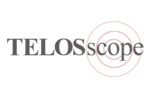By Klaus Boldt · Monday, April 12, 2021 
The following interview appeared in the Welt am Sonntag. This translation is published here with permission. Wolfgang Reitzle is one of Germany’s leading business executives. Translated by Russell A. Berman, with comments here.
Welt am Sonntag: Mr. Reitzle, the corona crisis robbed many Germans of their illusions about this republic. They don’t recognize their country anymore. They used to think of it as progressive, organized, digitalized, and well led. Was that image of modern Germany just a fantasy?
Wolfgang Reitzle: There have been plenty of signs of a discrepancy in Germany between appearance and reality: despite a defense budget of 47 billion euros, our guns can’t shoot, our tanks can’t roll, and our airplanes can’t fly—this doesn’t seem to bother anyone here, but other countries have taken notice. Our inability to build an airport for our capital city astonished the world.
Continue reading →
By Russell A. Berman · Monday, April 12, 2021 Wolfgang Reitzle is one of Germany’s premiere business executives, and Klaus Boldt, part of the editorial leadership of Die Welt, one of the foremost business journalists. The wide-ranging interview here points to the multiple dimensions of the problems facing Germany at the end of the Angela Merkel era. The general elections in late September are sure to lead to a new coalition government in Berlin—and a new chancellor—who will face all the problems that Reitzle diagnoses, with the possible exception of the pandemic, hopefully over by the fall, even in Europe. While the coronavirus’s economic, social, and political consequences are however sure to linger on, it figures here primarily as an example of massive government failure and the toxic mixture of bureaucracy, ideology, and incompetence that Reitzle denounces and that leads him to call Berlin “a failed state.”
Those are harsh words from a prominent leader of the German business community, especially when one recalls how in the U.S. political discussion in recent years Germany has been repeatedly held up as the better alternative to the Trump administration. Not long ago the myth of Angela Merkel as the new leader of the free world circulated through the press. That once-glowing imagery has now vanished in the face of the catastrophes of the German and the EU corona response, and the prospect of continued slow economic growth, fraying infrastructure, and insufficient support for technological innovation in the country where one would least expect it. Reitzle helps us understand why.
Continue reading →
By Telos Press · Thursday, April 8, 2021  On The Caravan Podcast at the Hoover Institution, Russell Berman talks with political scientist Matthias Küntzel about the potential return of the United States to the Iran Deal, Germany’s long-standing special relationship with Iran, anti-Americanism in Europe, and the anti-Semitism of the Iranian regime. Listen to the podcast here. Küntzel is the author of Germany and Iran: From the Aryan Axis to the Nuclear Threshold (Telos Press, 2014), which examines why the history of the special relationship between Germany and Iran is critical to understanding the ongoing controversy over Iran’s nuclear program. Both Germany and Iran and Küntzel’s earlier book Jihad and Jew-Hatred: Islamism, Nazism, and the Roots of 9/11 are available in our online store for 25% off the list price. Küntzel’s articles for Telos are also available at our online archive. On The Caravan Podcast at the Hoover Institution, Russell Berman talks with political scientist Matthias Küntzel about the potential return of the United States to the Iran Deal, Germany’s long-standing special relationship with Iran, anti-Americanism in Europe, and the anti-Semitism of the Iranian regime. Listen to the podcast here. Küntzel is the author of Germany and Iran: From the Aryan Axis to the Nuclear Threshold (Telos Press, 2014), which examines why the history of the special relationship between Germany and Iran is critical to understanding the ongoing controversy over Iran’s nuclear program. Both Germany and Iran and Küntzel’s earlier book Jihad and Jew-Hatred: Islamism, Nazism, and the Roots of 9/11 are available in our online store for 25% off the list price. Küntzel’s articles for Telos are also available at our online archive.
Continue reading →
By Russell A. Berman · Friday, March 12, 2021 To read more in depth from Telos, subscribe to the journal here.
Former President of the German Bundestag Wolfgang Thierse mounts a powerful argument against identity politics in Germany and their political consequences. His comments here and originally here have elicited a robust discussion in Germany, especially because the current leaders of the Social Democratic Party (SPD), of which Thierse is a long-term member, reportedly responded that they felt ashamed at his “regressive” views. While the leadership represents the current left wing of the party, other voices from the center rallied to Thierse’s defense. At stake is the gap between alternative aspirations within this venerable party, once the foundational political organization of the German left with roots in the workers’ movement of the nineteenth century.
Continue reading →
By Thomas Brussig · Monday, March 8, 2021 This essay was published in the Süddeutsche Zeitung on February 9, 2021, and appears here in translation with permission of the author. Footnotes have been added for clarification. Translated by Russell A. Berman, with comments here. The author intends the title as an ironic reference to Chancellor Willy Brandt’s 1969 statement that Germany “must risk more democracy.”
To read more in depth from Telos, subscribe to the journal here.
 The corona crisis remains an experience of helplessness, even though infection rates are falling. Despite all the limitations on everyday life and despite the start of the vaccinations, an end to the restrictions is nowhere in sight—even though a few countries have succeeded in stopping the virus. The feeling of helplessness in the face of corona is due to the fact that we have had to surmount the corona crisis with the tools of democracy. The corona crisis remains an experience of helplessness, even though infection rates are falling. Despite all the limitations on everyday life and despite the start of the vaccinations, an end to the restrictions is nowhere in sight—even though a few countries have succeeded in stopping the virus. The feeling of helplessness in the face of corona is due to the fact that we have had to surmount the corona crisis with the tools of democracy.
Sigmund Freud spoke of “three blows to humanity”: first, the Copernican worldview that pushed us out of the center of the universe; second, Darwinism, according to which we did not descend from God but from monkeys; and third, psychoanalysis, which teaches that we are not self-determined but only act due to hidden, unconscious, and instinctual motivations. Now we can speak of three blows to democracy, although it was only thirty years ago when liberal self-consciousness stood at its high point. According to the popular thesis of an “end of history,” market economies and democracy had achieved such an indisputable victory that nothing would stop their spread around the world.
Continue reading →
By Russell A. Berman · Monday, March 8, 2021 To read more in depth from Telos, subscribe to the journal here.
 A distinctive feature of public debate in Germany involves prominent literary authors, especially novelists, expounding on current political matters in major newspapers. Thomas Brussig’s essay “Risk More Dictatorship,” translated here, belongs to this genre. Known especially for his satire of East Germany, Heroes Like Us, Brussig chose a provocative title that seems to echo and respond to Chancellor Willy Brandt’s appeal more than fifty years ago to “risk more democracy.” Brandt was speaking in 1969 at a pivotal moment in the history of West Germany, indeed of the whole world, in the face of the protests during the previous year; Brussig in contrast appeals for “more dictatorship” in the face of the coronavirus pandemic, which he depicts as a potentially similar turning moment, with an accelerated “learning process,” that calls old certainties into question. These include the “end of history” claim that liberal democracy is inevitable; Brussig suggests that the “impotence” of democracies in the face of the pandemic raises the question as to whether other forms of government might be superior. The Chinese model of dictatorship casts a shadow across the essay. A distinctive feature of public debate in Germany involves prominent literary authors, especially novelists, expounding on current political matters in major newspapers. Thomas Brussig’s essay “Risk More Dictatorship,” translated here, belongs to this genre. Known especially for his satire of East Germany, Heroes Like Us, Brussig chose a provocative title that seems to echo and respond to Chancellor Willy Brandt’s appeal more than fifty years ago to “risk more democracy.” Brandt was speaking in 1969 at a pivotal moment in the history of West Germany, indeed of the whole world, in the face of the protests during the previous year; Brussig in contrast appeals for “more dictatorship” in the face of the coronavirus pandemic, which he depicts as a potentially similar turning moment, with an accelerated “learning process,” that calls old certainties into question. These include the “end of history” claim that liberal democracy is inevitable; Brussig suggests that the “impotence” of democracies in the face of the pandemic raises the question as to whether other forms of government might be superior. The Chinese model of dictatorship casts a shadow across the essay.
Continue reading →
|
|


 The corona crisis remains an experience of helplessness, even though infection rates are falling. Despite all the limitations on everyday life and despite the start of the vaccinations, an end to the restrictions is nowhere in sight—even though a few countries have succeeded in stopping the virus. The feeling of helplessness in the face of corona is due to the fact that we have had to surmount the corona crisis with the tools of democracy.
The corona crisis remains an experience of helplessness, even though infection rates are falling. Despite all the limitations on everyday life and despite the start of the vaccinations, an end to the restrictions is nowhere in sight—even though a few countries have succeeded in stopping the virus. The feeling of helplessness in the face of corona is due to the fact that we have had to surmount the corona crisis with the tools of democracy. 






